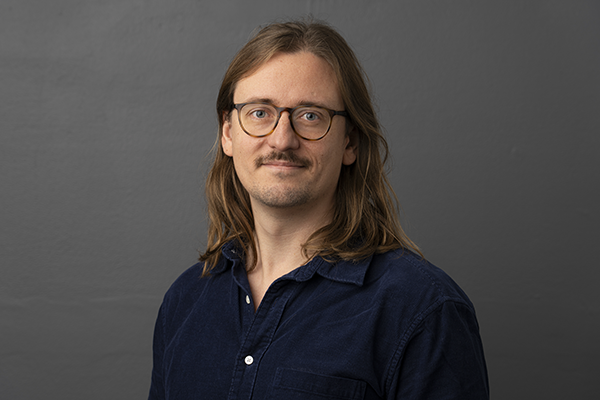Jonathan Jan Ilve Thorsen
Research leader

Project title
AMICASA – Airway Microbiome and host Interactions in early Childhood ASthmA
What is your project about?
I want to understand the role that bacteria play in childhood asthma – especially in young children below school age. The bacteria in our airways, termed the airway microbiome, has previously been underappreciated because of a focus on viral infections. I this project, I will zoom in on the airway microbiome in young children with acute asthma-like symptoms and how these bacteria and the child’s own cells affect each other. The goal is a better disease understanding – which can lead us towards improved treatment of acute asthmatic symptoms and the prevention of childhood asthma.
How did you become interested in your particular field of research?
As a child, I had asthma. I therefore understand first-hand how bothersome and intrusive that can be in a child’s life. Now I am a parent and have experienced how much it can also affect the whole family. These experiences were part of why I started on what turned out to be a very exciting path, when I was a medical student and wanted to try out research. I was pulled into a new world, where one can use the great contribution of volunteering children and families, and a good deal of patience and consideration, to pose crucial questions that can be answered with data and lead us to new knowledge, which will make a difference for future generations of children.
What are the scientific challenges and perspectives in your project?
In my project, I am focusing on the acute situation, where a child is sick with sudden asthmatic symptoms: coughing, wheezing, and difficulty breathing. For all these children, daily activities like playing and sleeping are interrupted. For some, it gets so bad that they must go to the hospital because they can’t breathe. The key research challenge is to combine advanced molecular biology analyses of the child, bacteria, viruses and immune system in complex data models, which can help us understand, predict, and prevent asthma, as well as lead to better and more precise treatment of these acute symptoms.
What is your estimate of the impact, which your project may have to society in the long term?
Asthma is one of the most common chronic diseases in children. Therefore, there is a huge potential in improving treatment and prevention – it can really benefit a lot of children. So, no matter if we focus on the individual child and its burden of disease, or look in a wider perspective of health economics and benefit for society, it is clear that progress in this field is of utmost importance.
Which impact do you expect the Sapere Aude programme will have on your career as a researcher?
I have a background as a medical doctor, but early in my career I chose the research path instead of becoming a clinical specialist, eg. a GP or hospital doctor. However, my research is still undeniably hospital based – and my work remains very close to these young patients. This path is not common for medical doctors in Denmark, and it is therefore crucial for the path forward in my research career to be supported and acknowledged at this level. The Sapere Aude: DFF-starting grant allows me to follow through on my personal and professional dreams of becoming a medical researcher, close to the patients, and to dedicate all my time to this pursuit.
Background and personal life
As a medical student I was hooked on the subject by exploring the human body’s complex systems and biological mysteries. That comes from a curiosity which I think is a recurring trait in other aspects of my life. If I hadn’t become a doctor, I would probably have become a musician (or was it the other way around?). I live in Copenhagen with my wonderful wife and kids, which I asked for help to answer this question. The oldest: “A very nice person, who helps me when I need help. If I get a bruise, he’s really good at knowing what to do so it’ll heal.” The youngest: “Dad!”
View all research leaders here
Research institution
University hospitals - Faculty of Health and Medical Sciences – University of Copenhagen
Research field
Childhood asthma (Health and disease, Pediatrics, Asthma, Microbiome, Viruses, Immunology, Bioinformatics, Data science)
City of your current residence
Copenhagen
High school
Ordrup Gymnasium
